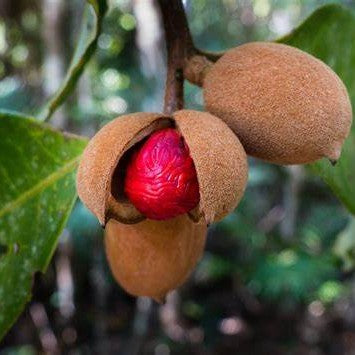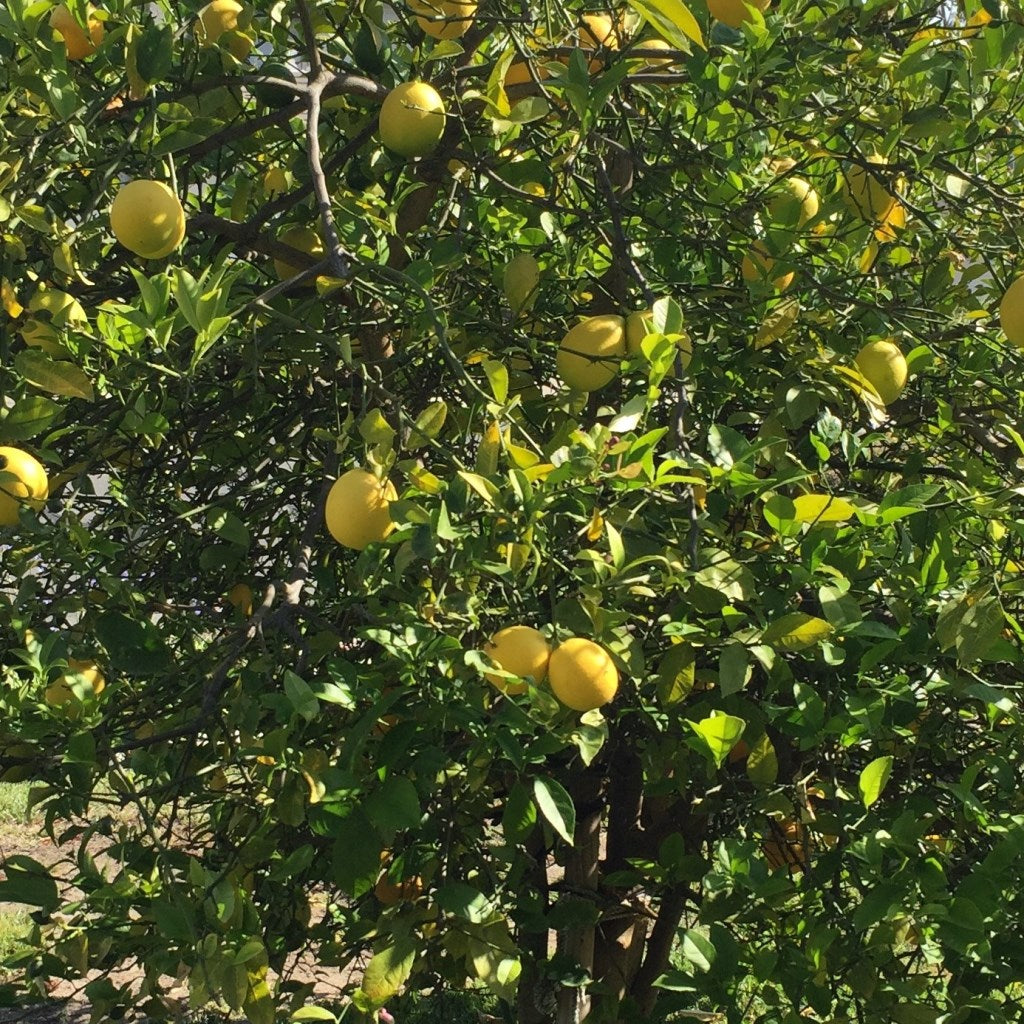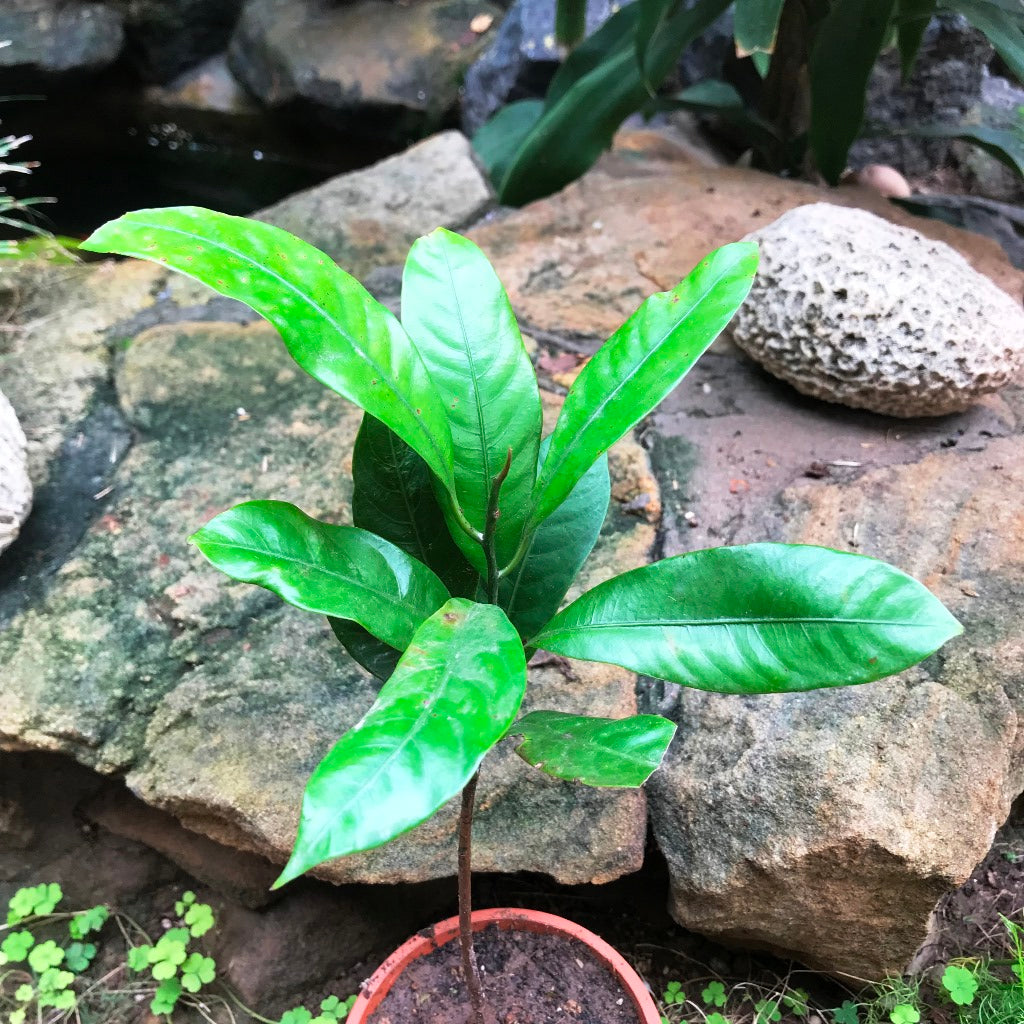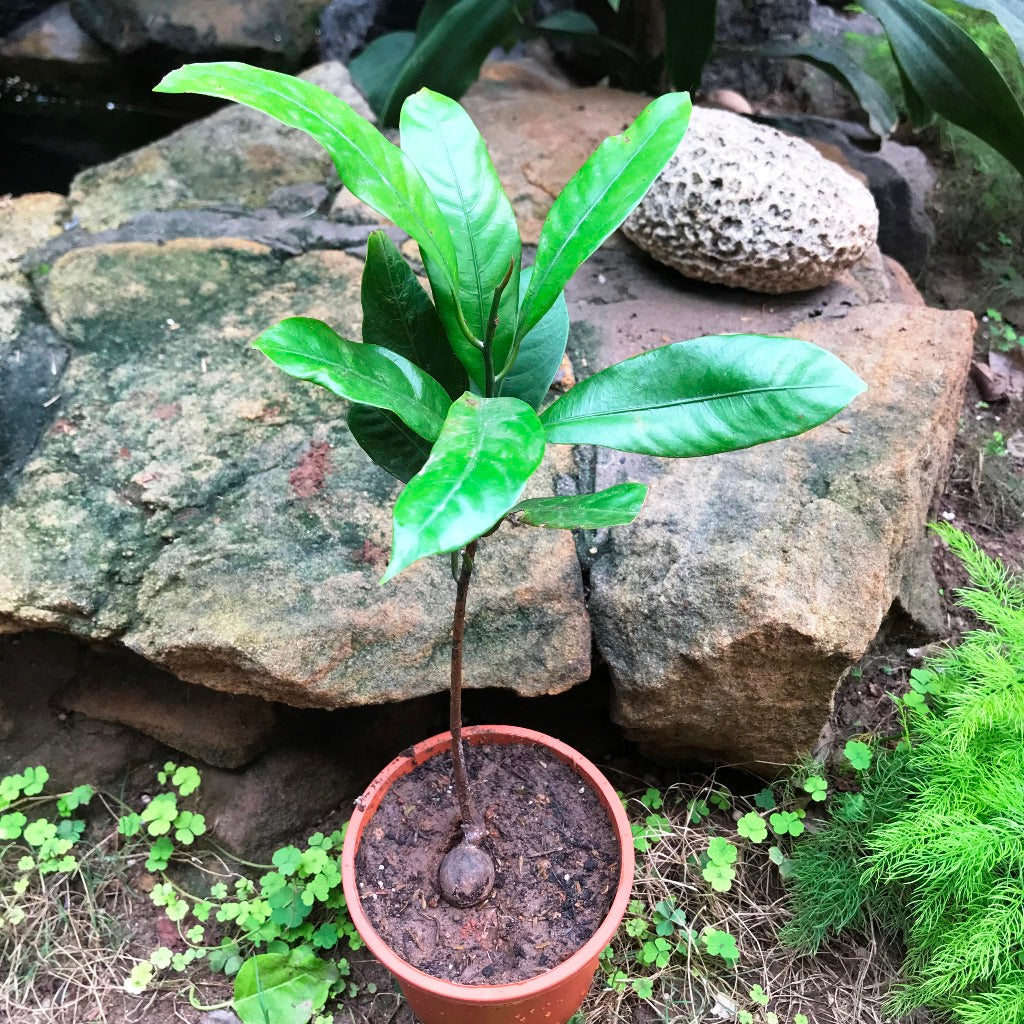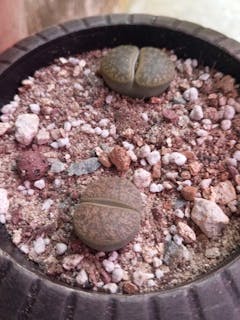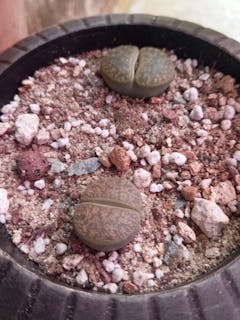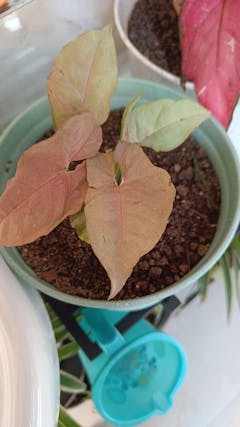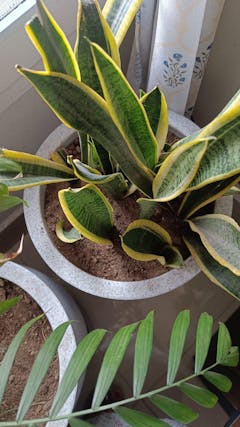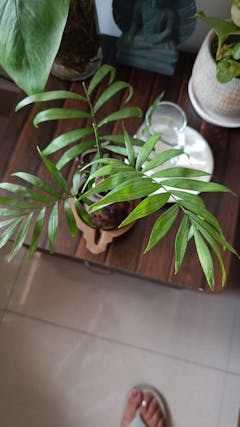Myristica fragrans
Family
Myristicaceae
Origin
Moluccas
Description
Nutmeg is a aromatic tree that grows to about 70 feet with numerous branches, has pointed dark green 5" long leaves that are arranged alternately and are borne on leaf stems about 1 cm long. The bark contains watery pink or red sap. Pale yellow, waxy, fleshy and bell-shaped flowers are usually single sexed; occasionally male and female flowers are found on the same tree. The reddish-yellow oval shaped fleshy fruit, when ripe splits into 2 valves revealing a purplish-brown, shiny seed (nutmeg) covered by a bright red aril (mace). The seed is about an inch long and lasts for years in its whole form.
Environment
The nutmeg tree thrives in a hot, moist climate and in well-drained soil with partial shade. Shade is required for the first two to three years. They need year-round water, but should not be kept wet, as the roots will rot.
The soil must be enriched with mixture of well-composted manure, topsoil, and coarse sand.
In the home garden a male and female tree are required for fruit production and they should be spaced at least 10 m (33 ft) apart. The trees will begin to bear fruit from around seven to nine years.The peak harvesting season is during June-August.
Elettaria cardamomum trees should only be grown outdoors. It also requires a fairly distributed annual rainfall of 150-300 cm. It can grow up to heights of 10’ or more with the tall stems usually producing long, alternate leaves. They reach heights of ten feet or more by the third year.
For getting the best yield cardamom plants should be fertilized with mineral potassium and phosphorus. Cardamom may flower 3 years after planting and the rhizomes can live for decades with good care
Landscape Uses
Nutmeg can be used as an evergreen tree in herbal garden.

